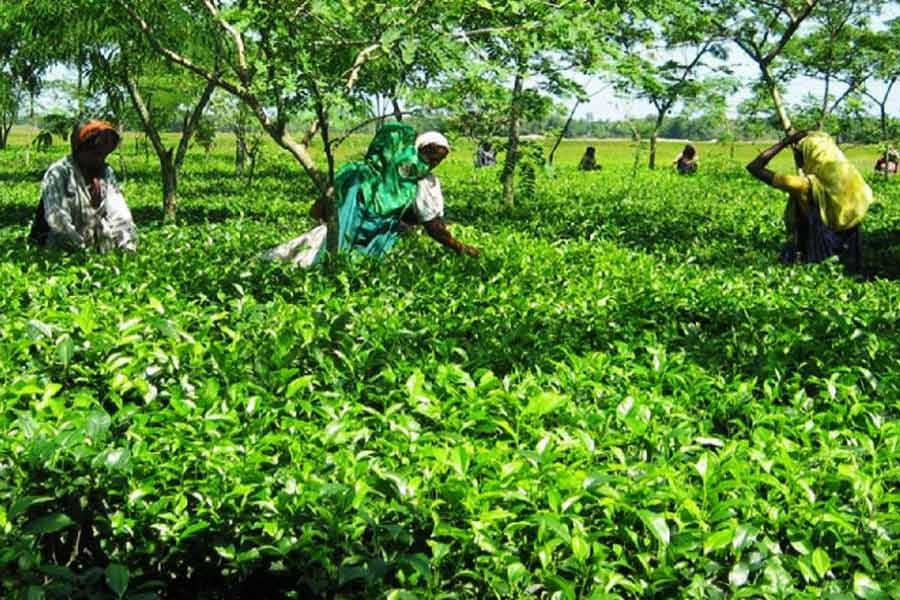The fast-growing tea belt in the country's north has been witnessing growers' protests over drastic reduction in prices of raw leaves by the tea factories there. The Panchagarh District Tea Garden Owners Association and the Panchagarh District Tea Growers' Rights Implementation Committee have been demanding fair price for their produce in the current harvesting season. The factories have set the price of a kilogram of raw tea leaves at Tk12.14 from the previous price tag of Tk 22.26---Tk10.12 less. This is irrational. But the story has more to it. As much as 15-40 per cent of weight of raw leaves is deducted from the real weight of the quantity supplied by growers. Thus tea growers in the region receive prices far less than their production cost. This unilateral and unacceptable transaction system has compelled the tea growers and the associations to vent their anger in the form of street demonstrations.
There is no reason to think that price of tea on the international market has slumped. Instead, tea has recorded a price hike of 24.96 per cent in April over March last and 22.32 per cent over the previous year at the same time. So this syndicated monopoly measure aimed at exploiting tea growers who cultivate this cash crop as part of the government's expanded programme for raising tea output to 144 million kgs by 2025 is counter to the policy. Unlike the tea estates in Sylhet, individual farmers contribute to the total production of tea in this belt comprising Thakurgaon, Nilphamari, Dinajpur and Lalmonirhat with Panchagarh leading the pack. It was in the year 2000 that tea was introduced to this unconventional area along with Bandarban in the Chhattogram Hill Tracts and since then the output has been rising consistently. Last year, there was a record yield of 14.5 million kgs in the region out of about 97 million kgs of the country's total and this year the target for production of the processed tea in the north is 18 million kgs.
Against the backdrop of rising domestic consumption of this popular beverage, tea export has dropped to the minimum over the years. So there is a bright prospect for raising production of tea in this region and going for export. Ranked 56th global tea exporter with a paltry amount of $4.33 million, the country can once again become a major exporter if only it develops the industry with an emphasis on expanding the crop's cultivation in the north and in the Chattogram Hill Tracts along with introduction of high-yielding varieties and modern cultivation method.
However, if the growers are deprived of their dues, they will feel discouraged to cultivate the crop. When the international tea market is buoyant, no machinations by any quarters with a negative impact should be allowed. Clearly, the points raised by the two tea associations in the north should be taken into cognizance. The growers demand setting of a reasonable price tag, an auction centre and a government-owned factory in this tea-growing hub. There is no doubt about the first two demands but maybe, the third one is counterproductive. It would be better to develop such a tea factory by a cooperative society formed by the growers with finance from the government, which the society will repay over an agreed period of time.


